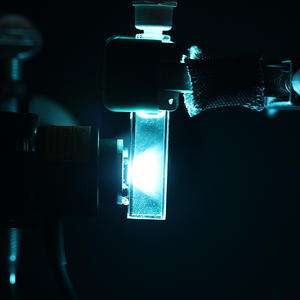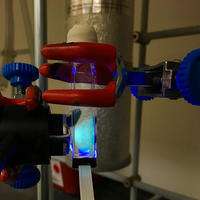Excited state proton transfer catalysis allows scientists to observe basic chemical reactions

What if light—or the lack thereof—could start and stop a chemical reaction in its tracks, giving scientists a freeze frame approach to study and control some of the most basic chemical reactions?
That's the premise that Florida State University researcher Ken Hanson is exploring through a new process his lab developed that uses light to drive reactions. It's called excited state proton transfer catalysis.
"We can turn on or off the reaction with a light switch," said Hanson, assistant professor of chemistry and biochemistry. "The reaction can even be performed by simply putting the reaction mixture in sunlight, the greenest of all alternative energy sources."
The research was published in the journal Chemical Communications and was featured on the back cover of the journal.
The reaction relies on certain non-acidic molecules that can become acidic after absorbing light. With light, they undergo a change that makes them 10 billion times more acidic than they are without the light. That change is greater than the difference between water and hydrochloric acid.

"These results open the door to an entirely new class of light-driven chemical reactions that are low cost, nontoxic and can be driven by sunlight," Hanson said.
This increased acidity, as well as the ability to stop and start a reaction opens up huge doors for scientists in numerous domains of research including light-driven 3-D printing, photodynamic therapy and drug synthesis.
Journal information: Chemical Communications
Provided by Florida State University



















